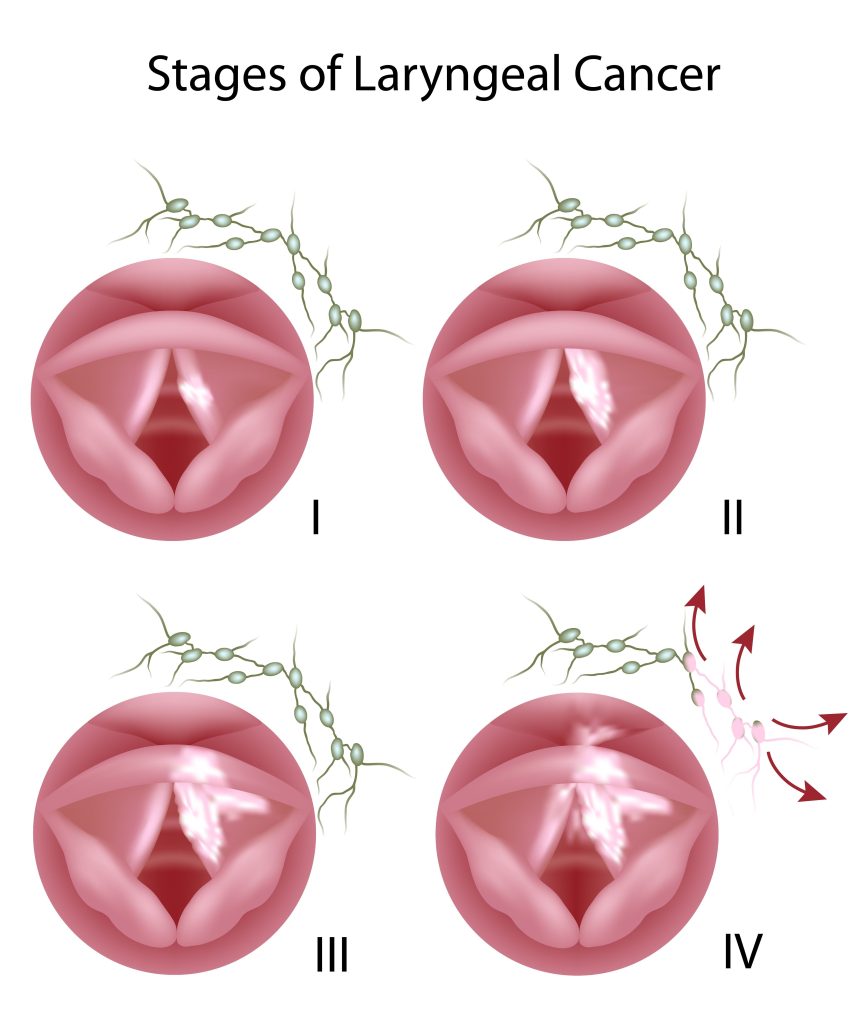Mark Kopec Now
Throat Cancer
Throat Cancer: Understanding the Disease and Your Rights with Baltimore Throat Cancer Lawyer Mark Kopec
The throat, also known as the pharynx and larynx, is a vital passageway for both breathing and swallowing. Unfortunately, this area can be susceptible to cancer. Throat cancer, while not the most common form, can have significant consequences if left undiagnosed or improperly treated. If you have been injured by a delay in diagnosis of throat cancer, then you may have a medical malpractice claim. Accordingly, contact Baltimore throat cancer lawyer Mark Kopec at the Kopec Law Firm to discuss your rights.
Understanding Your Throat Anatomy
The throat can be broken down into two main sections:
- The Pharynx (Pharyngeal Cancer): This muscular tube connects your nose and mouth to the windpipe (trachea) and esophagus. It has three sub-sections:
- Nasopharynx: Located behind the nose and upper part of the throat.
- Oropharynx: Located behind the mouth and includes the tonsils and base of the tongue.
- Hypopharynx: Located behind the lower part of the throat, connecting to the esophagus.
- The Larynx (Laryngeal Cancer): Also known as the voice box, it contains the vocal cords and is responsible for producing sound.

Types of Throat Cancer
There are two main types of throat cancer, both originating from abnormal growth of squamous cells lining the throat tissues.
- Squamous Cell Carcinoma: This is the most common type, accounting for over 90% of throat cancers. It can affect any part of the throat.
- Adenocarcinoma: This less common type usually develops in the glandular tissues of the throat, primarily the nasopharynx.
Risk Factors
While the exact causes are unknown, certain factors increase the risk of throat cancer:
- Tobacco Use: Smoking and chewing tobacco are significant risk factors.
- Alcohol Consumption: Heavy alcohol intake increases risk.
- Human Papillomavirus (HPV): Particularly HPV 16 and 18, are linked to oropharyngeal cancer.
- Diet: A diet low in fruits and vegetables may contribute.
Symptoms of Throat Cancer
Symptoms can vary depending on the location of the cancer. Here’s a general overview:
- Persistent Sore Throat or Hoarseness
- Difficulty Swallowing
- Earache
- Neck Lump
- Weight Loss
- Persistent Cough
- Blood in Saliva
Seeking Medical Attention: When to See an Otolaryngologist (ENT)
If you experience any of these symptoms for more than two weeks, schedule an appointment with an otolaryngologist (ENT). This doctor specializes in ear, nose, and throat conditions.
Diagnosis of Throat Cancer
An ENT will conduct a thorough physical exam, including checking your throat, nose, and ears with a lighted instrument. Imaging tests like X-rays, CT Scans, or MRIs may be used to get a closer look. A biopsy, where a small tissue sample is extracted for microscopic examination, is often necessary to confirm a cancer diagnosis.
Treatment Options for Throat Cancer
Treatment for throat cancer depends on the stage (extent) of the cancer, its location, and your overall health. Options may include:
- Surgery: The most common treatment, specifically aiming to remove the cancerous tissue. Depending on the location and size of the tumor, this may involve removing some healthy tissue as well.
- Radiation Therapy: High-energy beams target and kill cancer cells.
- Chemotherapy: Powerful drugs to destroy cancer cells throughout the body.
- Targeted Therapy: Drugs specifically target cancer cell growth pathways.
Prognosis for Throat Cancer and the Need for Baltimore Throat Cancer Lawyer Mark Kopec
The overall prognosis for throat cancer depends on various factors, including the stage and type of cancer, your age, and overall health. Early detection and treatment significantly improve the prognosis.
Here are some resources for survival rates by stage:
- American Cancer Society
- National Cancer Institute
Medical Malpractice Claims with Baltimore Throat Cancer Lawyer Mark Kopec
If you suspect a medical professional failed to diagnose or properly treat your throat cancer, then you may have a medical malpractice claim. Here are some potential grounds for such a claim:
- Failure to Order Necessary Tests: An ENT may be negligent for not ordering imaging tests or biopsies despite persistent symptoms suggestive of throat cancer.
- Misdiagnosis of Throat Cancer: Mistaking throat cancer for another condition could lead to delayed treatment.
- Surgical Errors: During surgery, complications or accidental damage to healthy tissues may constitute malpractice.
- Improper Radiation or Chemotherapy Dosing: Incorrect dosage of radiation or chemotherapy can also worsen your condition.
Next Step: Call Baltimore Throat Cancer Lawyer Mark Kopec
If you believe you may have a medical malpractice case, then consult with an experienced medical malpractice lawyer. Visit our free consultation page or video. Then contact the Kopec Law Firm at 800-604-0704 to speak directly with Attorney Mark Kopec. He is a top-rated Baltimore medical malpractice lawyer. The Kopec Law Firm is in Baltimore and pursues cases throughout Maryland and Washington, D.C.





